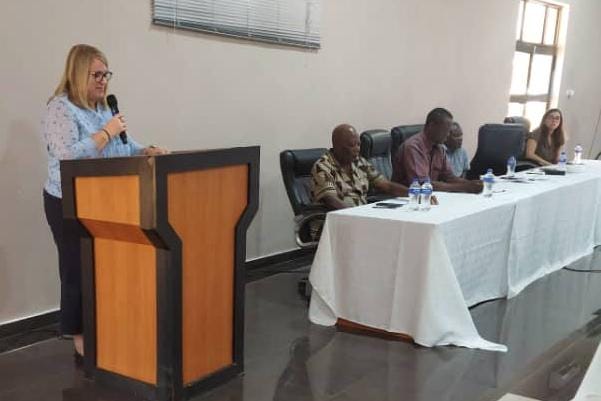SURVEY RESULTS - Chambo fish shows signs of a remarkable resurgence
The 2023 biomass fish assessment has revealed a significant resurgence in the Chambo fish population, marking a positive trend with promising economic implications for Malawi

MANGOCHI-MONKEY-BAY, Malawi (Planet Defence) - The Department of Fisheries has announced encouraging preliminary results from this year’s biomass assessment survey, indicating a notable recovery of the Chambo fish species in Lake Malawi writes Maureen Kawerama in Mangochi.
Dr. Hastings Zidana, the Director of Fisheries, shared this update during the closing ceremony of the 2023 Fish Biomass and Water Quality Assessment fieldwork held in Mangochi-Monkey-Bay on Monday. The survey commenced on October 28th, 2023, and concluded on December 2nd, 2023.
Dr. Zidana attributed the recovery of Chambo fish in Lake Malawi to the establishment of sanctuaries, which the department has actively promoted within the fishing community. These sanctuaries serve as protected areas for fish breeding, specifically for the Chambo species.
"In the previous 2020 survey, conservation zones designated for Chambo fish were primarily populated by small Utaka fish. However, this year’s survey revealed a significant presence of small Chambo fish in these sanctuaries instead of Utaka," stated Dr. Zidana.
He further emphasized, "This trend signals positive economic growth for our country, given Chambo's high economic significance. Increased numbers of this species in our lake imply heightened income generation for our nation and improved livelihoods for local communities."
Dr. Daniel Jamu, the REFRESH Project Chief of Party under PACT, highlighted that successful recovery of Chambo fish in Lake Malawi was due, in part, to effective collaboration with communities. He emphasized community-managed fish sanctuaries and community ownership of resources facilitated by the Beach Village Committees (BVCs).
Pamela Fessenden, the USAID Mission Director for Malawi, expressed her satisfaction with this year's survey outcomes and pledged ongoing support for such initiatives.
"Conducting these surveys is crucial in comprehending the impact of fishing on aquatic biodiversity and biomass in the lake. Without these assessments, measuring the lake's fish productivity would be challenging," remarked Fessenden.
The Department of Fisheries collaborated on this year’s Biomass survey with Mozambique’s Oceanographic Institute. The comprehensive survey, amounting to approximately MK150 million, spanned across Karonga, Nkhata Bay, Nkhotakota, Metangula, Salima, Dedza, and Mangochi districts.


